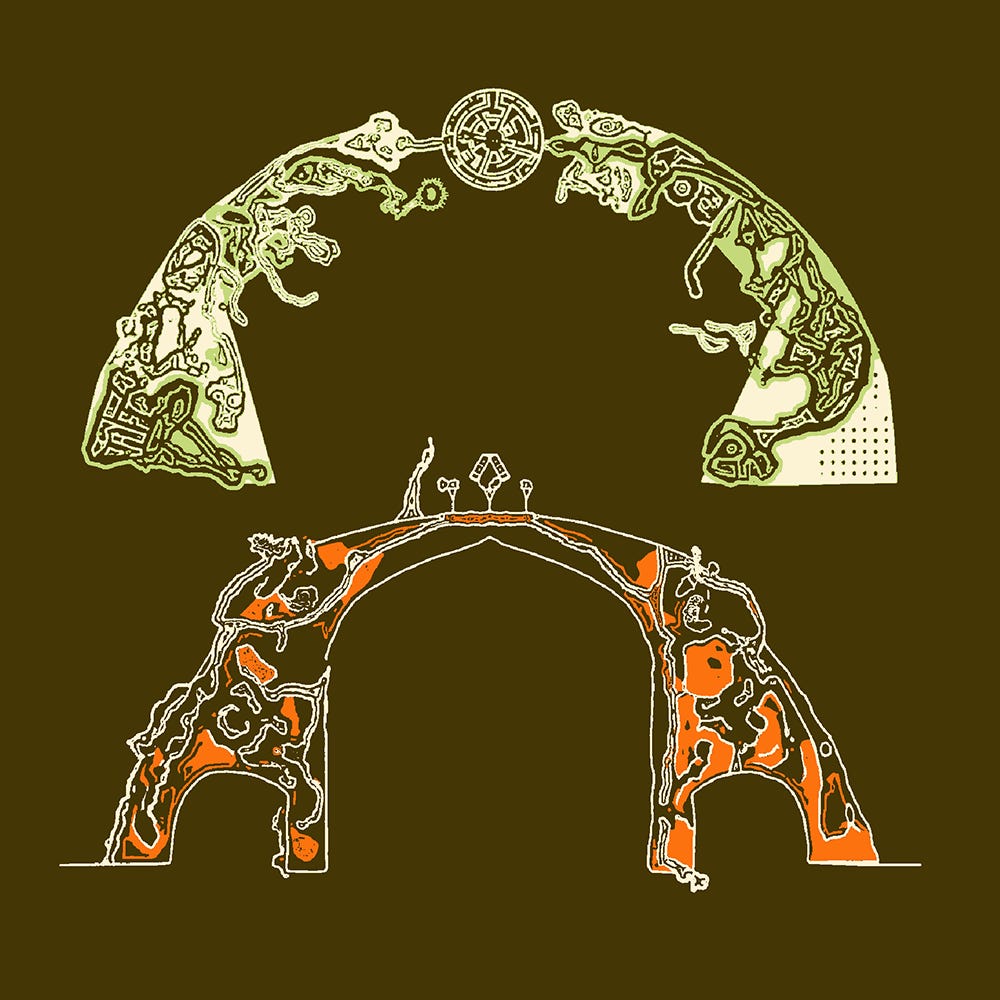Welcome to the inaugural episode of Bridge Atlas, a limited-run video podcast series hosted by Christine D. Kim. For this introductory episode, Christine is joined by Tim Beiko, protocol coordination co-team lead at the Ethereum Foundation, and Timber Stinson-Schroff, program manager for Summer of Protocols. RSVP to the Nov. 22 Devconnect event.
Christine: Timber, can you give us a brief overview of Summer of Protocols and its history?
Timber: Summer of Protocols (SoP) is a research program started three years ago to make protocols a first-class concept for thinking about the world. We’ve gone through four phases: a pilot study, a summer focused on research, a summer on application, and a summer on education. Along the way, we’ve added year-round tracks like a guest talk series and a newsletter that evolved into a science fiction magazine plus nonfiction essays. Funded by the Ethereum Foundation (EF), we’ve had about 100 participants produce essays, projects, and artifacts, all aimed at understanding, designing, and improving protocols.
Christine: Tim, you helped kickstart this at the EF?
Tim: Yes. In 2022, I reached out to Venkatesh Rao to help me think about Ethereum – it’s not just a product, tech platform, or political construct, but a mix of all three. We realized thinking of Ethereum as a protocol was the right approach. We did a pilot study defining protocols and how Ethereum fit in, then funded 30 researchers from different domains to study protocols. Timber, for example, looked at workplace safety protocols. We found common ideas across domains, so we kept expanding.
Christine: Many listeners think “protocol” means DeFi or blockchains. What do you mean by protocol?
Timber: We study everything from micro-protocols like handshakes to large-scale ones like the Kyoto Protocol, plus technical protocols like Ethereum and social protocols such as elections. The scope is wide – fields as different as coal mining, video game design, cryptocurrency, encryption, wildfire management, and urban planning.
Tim: Ethereum is like a Swiss Army knife – it shares features with other protocols but has unique elements, like embedded money. Studying different protocols helps us see what Ethereum might adopt or adapt, and we’ve found high-level principles that generalize across domains.
Going to DevconnectARG in Buenos Aires? Join the Bridge Atlas workshop on November 22nd.
Christine: Can you share key learnings from non-Ethereum studies that impacted Ethereum?
Tim: Two big ideas stand out. First, it’s better to analyze protocols by how bad they can be – like airport security – than how good they are. Nadia Asparouhova from our first cohort created the “Kafka Index” to rate the worst version of a protocol. Second, “Whitehead advances” – protocols that work so well they fade into the background, like HTTP or GPS.1 These need to be designed right from the start, as mass adoption makes change harder. Seeing these patterns refined our intuition and confirmed Ethereum’s community mostly has the right instincts.
Timber: And it goes the other way too. Coming from outside crypto, I’ve learned from Ethereum experts about building economies on top of protocols, which parallels work in health and safety in unexpected ways.
Christine: Timber, how do you measure the success of SoP?
Timber: We focus on building “protocol literacy,” so people in different fields can communicate more effectively about protocols. Over the years, we’ve simplified the language, recruited professors worldwide, and seen our terms used by people we’ve never met. That’s a good sign, even without hard data.
Christine: Let’s talk about this Bridge Atlas series. Tim, what inspired it?
Tim: In the early years of this effort, we avoided focusing on crypto in order to attract serious researchers from other fields. Now, it’s time to bridge Ethereum’s community with the broader protocol research community. This series pairs top Ethereum researchers with SoP alumni from other domains to explore parallel themes. Our first SoP event at an Ethereum conference will close DevConnect with a full Bridge Atlas day, connecting these communities.
Christine: So it’s about creating new “strata” for protocol research?
Tim: Yes, and showing how Ethereum-specific research can help other fields. Themes like “hardness” and “trust experience” resonate broadly. We want smart, curious audiences outside crypto to engage with Ethereum’s cutting-edge protocol work.
Timber: Think of it as building the missing “meso level” of discourse – between micro technical details and macro geopolitics – about how organizations and institutions design and manage protocols.
Tim: Exactly. Other professions have playbooks and best practices; protocols don’t. Creating this mid-level knowledge is what’s missing.
Christine: What themes will the series cover?
Timber: Computing frontiers – like wearables – and commons, from software to air quality, to road safety. How can we harden these against failure modes? Crypto folks have a lot to share here.
Tim: For Ethereum, that means questions like how to steward our commons, what adoption of new tech looks like, abstract protocol design, and the right institutional landscapes to support protocols.
Christine: As host, I’ll moderate between Ethereum and non-Ethereum guests. Timber, any advice?
Timber: Keep building your literacy with SoP terms, introduce them to guests, and let curiosity guide you. Many guests are SoP alumni and already have some shared language.
Tim: You’ve done great work exploring the human side of protocol builders’ motivations – that’s universal across domains.
Christine: I’m a skeptic, so I’m excited to test whether non-crypto protocol learnings really apply to Ethereum. If I’m convinced, listeners will be too!
Timber: That’s the goal.
Christine: Before we wrap, Timber, explain the name Bridge Atlas.
Timber: “Bridge” is about connecting fields, theory and practice, people. “Atlas” evokes multiple maps – multiple perspectives – and global scale. It also nods to the mythological Atlas, doing hard, thankless foundational work, which is what protocols do when they work well.
Alfred North Whitehead wrote: “Civilization advances by extending the number of important operations which we can perform without thinking about them.” See Strange New Rules, the inaugural post on our Substack, for more context.



